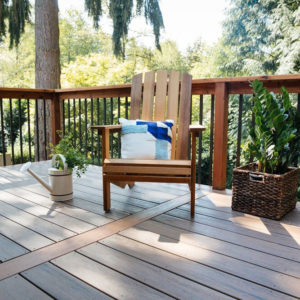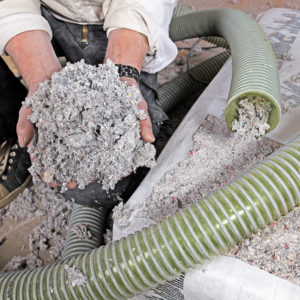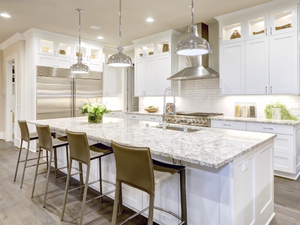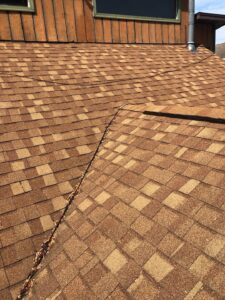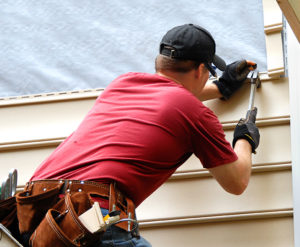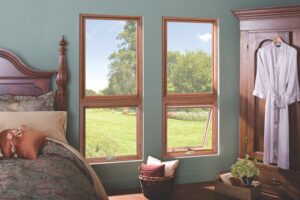Congratulations! You’ve decided to step up your house game by adding a deck. While this is a big decision, it doesn’t have to be overwhelming. It’s all about planning.
There are a few important things to decide before you take the plunge and head to the Home Depot for wood planks.
Table of Contents
What to Know Before Starting
Some decks have levels, like steps, and most are made from lumber. Some decks are covered, and others have a railing, but they never have a ceiling. There are several different kinds of materials that you can use to make one, including PVC or composite wood. Here are some things you need to know before you build your deck.
Why Do You Want A Deck?
Before you hire builders or break out the saw and hammer to build one yourself, it’s essential to get a sense of exactly why you need the deck.
Figuring out what you’re mostly going to use the deck for can inform your decision-making process moving forward. There are a few different reasons people consider deck installation. Here are a few.
- Personal use – If the deck is simply going to be a place to sit and have a cup of coffee in the morning, or relax with a nice book on a sunny afternoon, then it’s not going to need to be as elaborate as a deck that’s made for entertaining.
- Entertaining – Do you see yourself having a lot of parties with a large number of people? This would mean more space, and potentially a grill, a table and lots of chairs. You would need to establish the logistics beforehand.
- Pool – A pool deck usually surrounds a pool and has its own needs. Some people build outdoor shower stalls. It also needs to be built around the pool, which can present some challenges of its own.
- Gardening – If building a deck for the sole purpose of gardening, the main thing to consider would be location.
Figuring out the “why” will help to inform the following decision:
Where Do You Want Your Deck?
There are several factors to consider when thinking about the location of your deck. Most of them are purely for practical reasons, but the place will definitely affect the price of the finished product.
- Proximity to House – The majority of all decks are attached to a house, but that doesn’t mean it has to be. There could be various reasons to build a deck away from the house, including looser permitting regulations. Unattached decks are either floating or freestanding.
- Sunlight Considerations – Is the deck going to be mainly in the sun or the shade? Sometimes, one spot of a yard is much sunnier than another, which will help decide where to put the deck.
- Size – This is a big one. Or a small one, depending on what you want. Installing a deck can be like playing the right Tetris piece. You want to put it in precisely the right place for the most benefit.
- High or low – Is your deck going to be elevated, or will it be close to the ground? How high will it need to be right in the backyard?
Decks can be a sizable investment, but they will increase the value of your home significantly. Unfortunately, the opposite can also be true, but that’s usually depending on the quality of the deck. A good rule of thumb is to keep the deck at about half the size (or smaller) of the main floor of your home.
How Much Can You Afford to Spend on Your Deck?
Another huge factor. Some might say the most crucial factor. If you’re going for the bare bones, most basic approach, a deck will run anywhere from $4,000 to around $12,000. This price includes your materials and labor. Think about it this way; deck installation costs generally run anywhere from $25 to $60 a square foot.
Have you been wondering about the cost to build a deck yourself? You will save money if you decide to build a deck yourself, but remember that it’s a complicated process, and if you don’t have the know-how, you could end up paying a lot more to have someone fix it later.
Even when doing it alone, calculate the cost of materials and decide what is affordable. Wood can vary in price for various reasons, including quality, time of year, demand, and transportation. Concrete and PVC for deck installation can vary in price depending on those variables.
Designing Your Deck
Now that you’ve made some key decisions about your potential deck, it’s time to make some important decisions about material, style, and practicality. Here’s a rundown on some options.
Picking Your Material
- Pressure-treated wood – This is a low-cost option and very common for decks. It’s made of fir and treated with anti-rot and insecticide chemicals. The chemicals aren’t dangerous unless there’s a fire. This wood lasts decades but does need to be refinished yearly.
- Composite decking materials – This is a low-maintenance wood fiber that’s combined with recycled polyethylene. It lasts a long time but needs to be cared for to avoid mold. It costs about as much as vinyl.
- PVC decking – PVC is resilient and very easy to clean. It’s practically maintenance-free, and it comes in a bunch of different colors. It’s not cheap, however. It can be comparable to redwood in terms of price.
- Hardwoods – Cedar and Redwood are generally easy to work with and last about 15 to 20 years with proper maintenance.
Considering Additions
This is where things can get expensive, but it’s also a fun way to personalize a deck.
- Consider installing deck railing. Decks that are higher up usually require safety railings, but railings also give a sense of separation from the deck and the yard.
- Elevated decks come with space underneath, so decide if your deck will need a lattice to help with the look and whether you’re going to have to establish how to install lattice under the deck.
- Are you going to be using the deck at night a lot? Then you’re going to need lighting. Deck lighting is fairly specific, and it’s going to add to your deck installation cost.
- One way to really make a deck sparkle is with built-in planters. If you want to give the deck a more green look, this is an excellent direction to take.
- Decks will get a lot of traffic, and if you have children, there will be toys and various chairs and furniture. Remember that these things might need storage areas, especially if you live somewhere that has frequent hurricanes or tornadoes.
- One option for decks is built-in seating. This can end up costing more, but you won’t have to worry about loose debris during storms.
DIY or Contractor?
Are you wondering whether you should DIY your deck or opt for a professional contractor? Read on to establish which option would be the best fit for your project.
DIY
While you can DIY a deck, it’s not as simple as just buying wood. The majority of decks need permits because they’re considered construction. An owner could DIY a deck and not make it to an area’s specifications and then be forced to hire a contractor after all.
A significant consideration in opting for DIY is to reflect on the cost to build a deck yourself. Some ways to save money is to hire a professional for the hard stuff and then DIY the sealing, painting, or staining.
Contractor
Hiring a contractor means more peace of mind and not having to deal with building codes, permits, and the hassle of potentially making a huge mistake. Here are some questions you should ask a contractor before you hire them.
- Are you insured? Make sure to take a look at the insurance papers and get a sense of what’s covered in case of an accident.
- How much experience do you have building decks? Ask your contractor for references for previous work, and talk to those people to ensure they’re satisfied.
- What kind of warranty do you offer? Most contractors will guarantee their work for a certain period. Generally, it’s a year. Materials also have a warranty on them, some for as much as 25 years.
- Do you specialize? Ask your contractor if they make a particular type of deck or are more of a jack of all trades.
- Who’s going to be working with you? Ask the contractor who’s on their crew and how long they’ve been working together.
- How much is my deck going to cost? Avoid paying large amounts upfront, and sign a contract that stipulates what you’re going to get. Generally, contractors are paid 30 percent upfront, 30 percent in the middle of the job, and then the rest when it’s done.
Frequently Asked Questions
What is the Difference Between a Deck and a Patio?
A patio is a paved outdoor area usually used for eating or partying. It’s traditionally made of stone, concrete, brick, tile, or cobblestone. A deck is a platform adjoining a house made of wood, PVC, or wood composite.
Do I Need a Permit for a Deck?
Yes, the majority of decks require a permit. Decks that are attached to a house or 30 inches or higher will need to be permitted. Bringing a drawing of a deck into the permitting office can expedite the process.
Do Decks Increase Your Home Value?
If they are well built, insured, and high quality, a deck can add value to a home. A well-built deck can add between 75 to 106 percent of its value to a home.
Before You Go
Now that you know everything you need about deck installation and how to build a deck in your home, reach out to Legacy Roofing to build the deck of your dreams.


